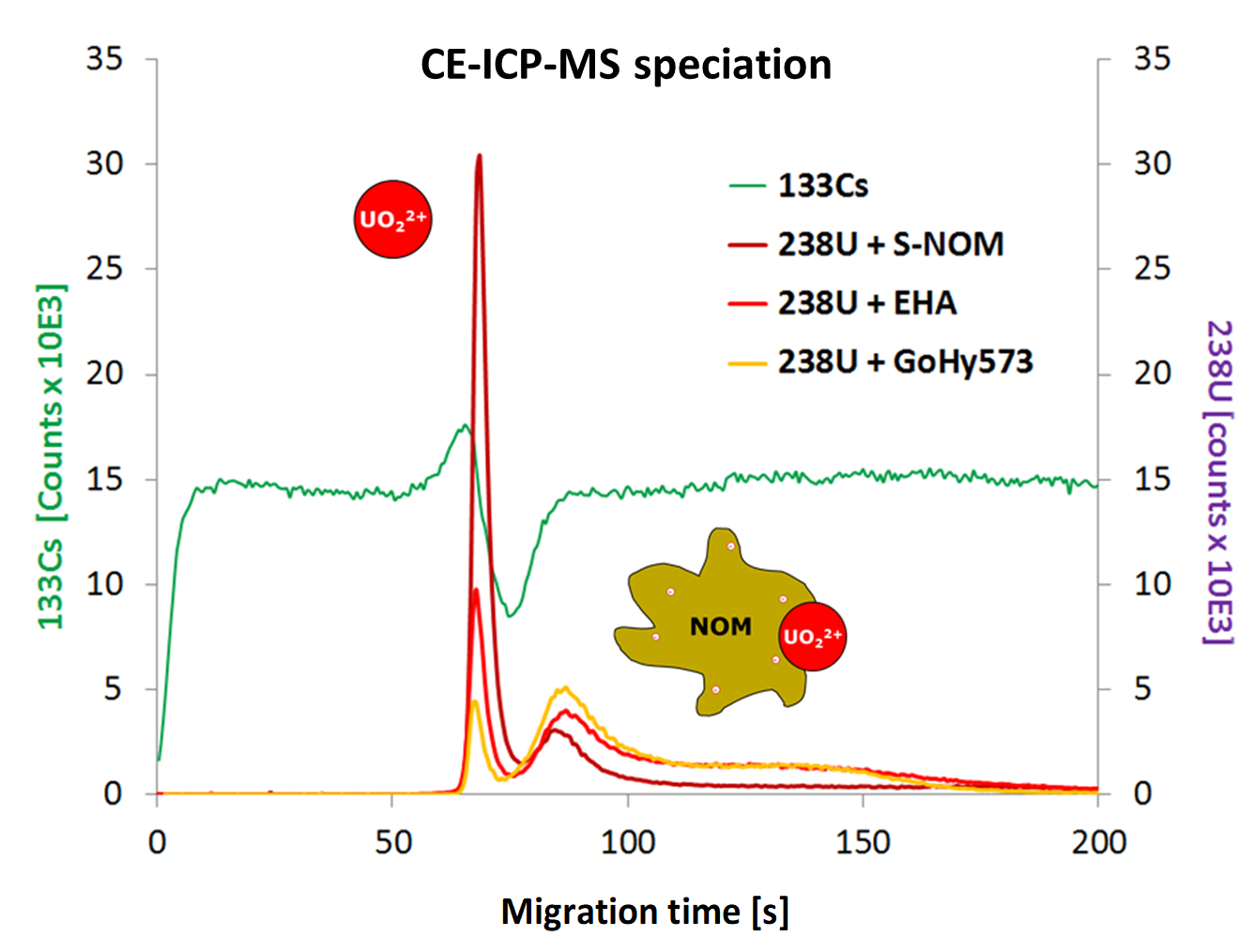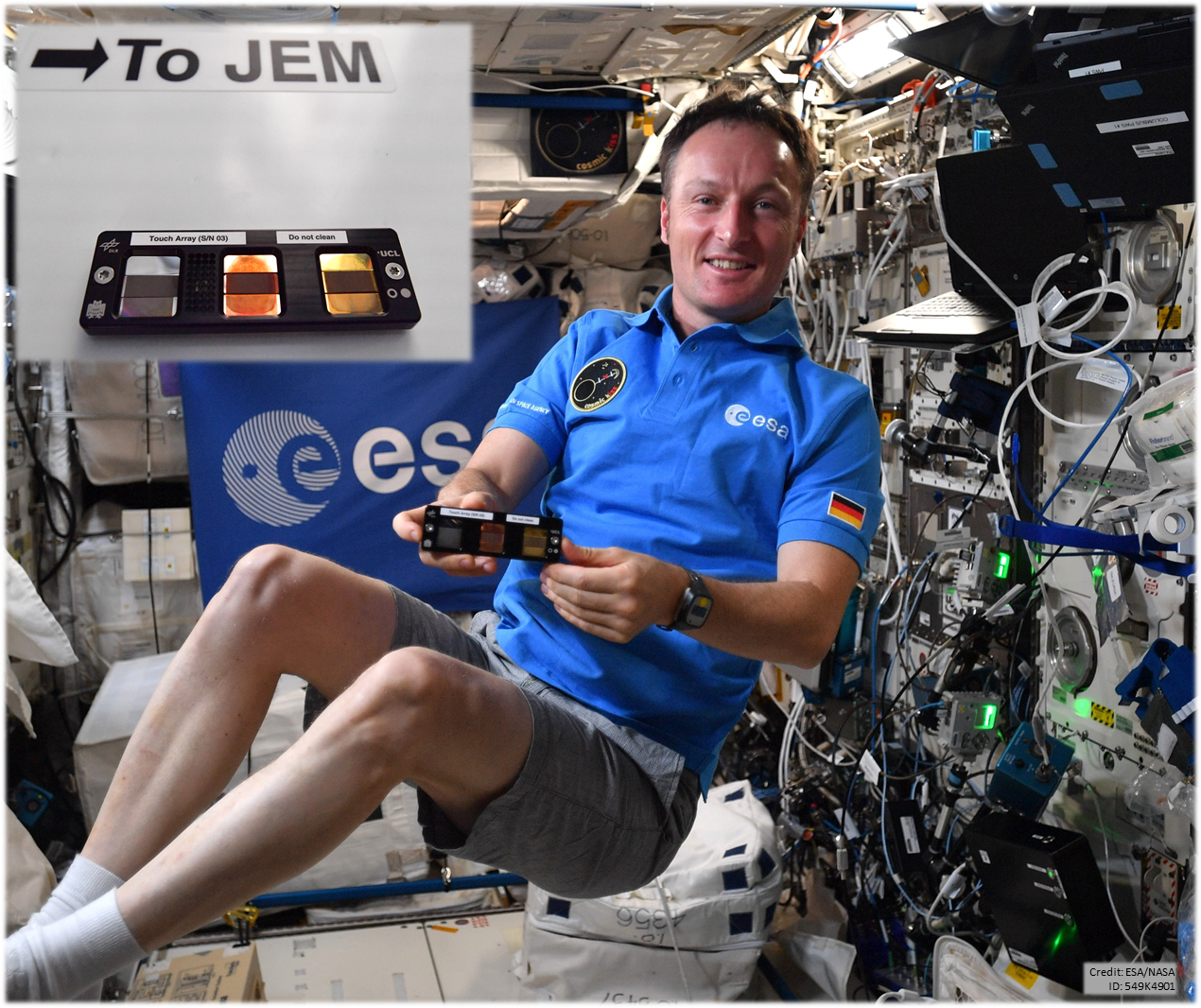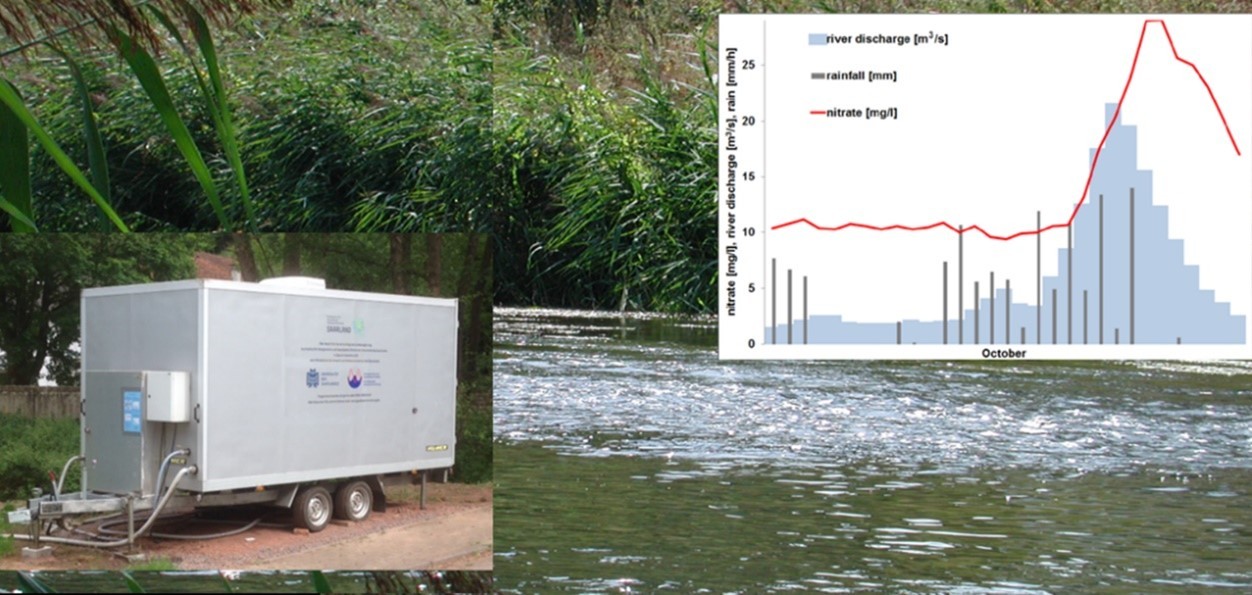Analytics
Chemical elemental analysis, environmental analysis and mass spectroscopy are the main pillars of research in the field of analytics at Saarland University.
Elemental analysis
Elemental analysis at Saarland University uses a variety of analytical methods and measurement techniques, with a focus on element trace analysis and element speciation by coupling ICP-MS and ICP-QQQ with capillary electrophoresis (CE) and liquid chromatography (LC).
The highly sensitive trace analysis of elements and the determination of element species in aqueous solutions, especially in complex environmental samples, represents a major challenge for analytics. The development and application of coupling methods (CE- or LC-ICP-MS), which are used, for example, in the field of repository research or environmental analysis to investigate element speciation between metal ions and complex ligands in addition to trace analysis, plays a major role here.
A special focus of elemental analysis is the development of new innovative analytical methods for difficult matrices. For example, a transient ICP-MS measurement methodology has been developed with which saline solutions up to 300 g/L NaCl (20 times the normally possible concentration) can be measured by ICP-MS without special sample preparation.
Further areas of application and research of elemental analysis are in the field of river monitoring (quantification, speciation and origin of pollutants in flowing waters), in the field of NanoBioMed (trace analysis to detect the accumulation of nanoparticles in complex matrices such as organic tissue), in the development of functional materials (multi-element screening and leaching behavior of metal-coated antibacterial surfaces), and in materials science (determination and verification of chemical composition, degrees of functionalization, and decomposition behavior of nanoscale materials), as well as in cooperation with internal and external university partners.
Together with the Chair of Functional Materials of the Saarland University and in cooperation with the Institute of Aerospace Medicine (AG Aerospace Microbiology, DLR Cologne), elemental analysis is involved in ESA space projects, in which, for example, novel material surfaces structured with laser interference are exposed on the International Space Station ISS as part of the "Cosmic Kiss" mission and, after their return, are also examined for their antimicrobial effectiveness using elemental analytical methods.
Further information is also available on the pages of WG Kautenburger - Specations- and Elemental analysis
Environmental analysis
The field of environmental analysis at the UdS is mainly based on the projects of water quality monitoring. The working group, consisting of chemists and geographers, has been operating mobile water quality measuring stations for the high-frequency collection of real-time measurement data of various relevant quality parameters for many years. The stations are used on behalf of the Ministry for the Environment, Climate, Mobility, Agriculture and Consumer Protection to implement the EU Water Framework Directive and related national legislation, and are used for the chemical and ecological assessment of small and medium-sized flowing waters in Saarland. The use of such mobile measuring stations and the observation of the collected measured values was so far unique in the Federal Republic, other federal states have only recently started planning such stations.
In the current project phase, the parameter canon will be decisively expanded and new strategies of evaluation will be developed in order to meet the increasing challenges in the field of environmental analysis in the sense of dedicated target monitoring and to be able to pursue further questions.
In addition, new methodological approaches are being pursued to optimize the evaluation and interpretation of measurement data using multivariate statistics (e.g. PCA /PARAFAC) and artificial intelligence (AI).
Further information is also available on the pages of River monitoring and Environmental analysis.
Mass Spectrometry
The chair representing this research area is unoccupied at the moment. Therefore, mass spectrometry is continued as a service unit, which is accessible to all departments of Saarland University. More information can be found on the Homepage of the Service Mass Spectrometry





